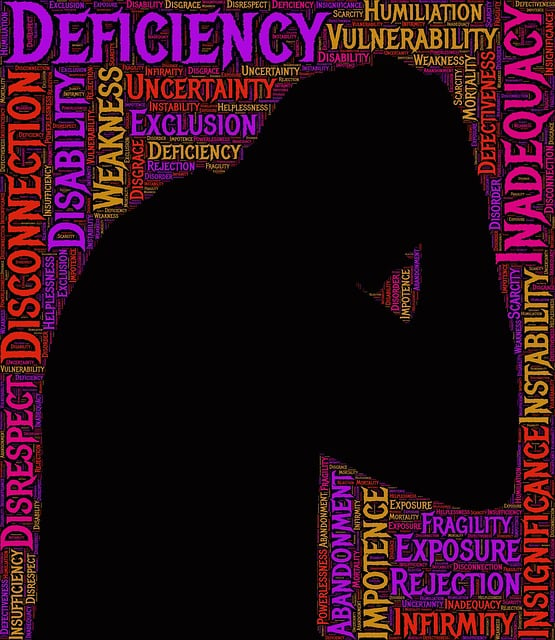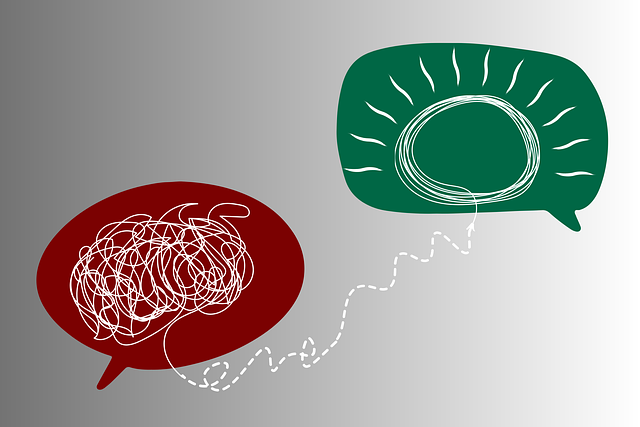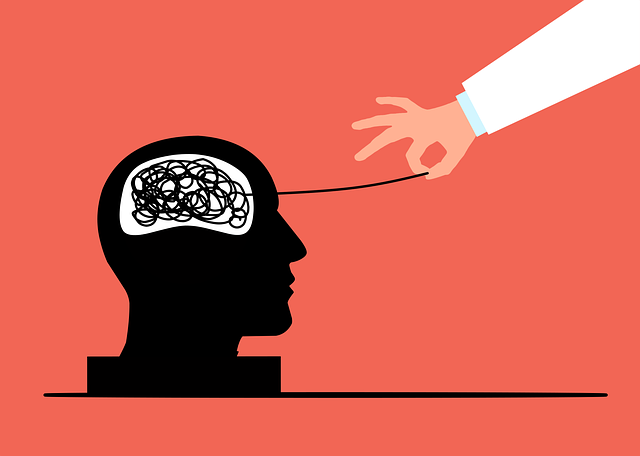Understanding mental wellness group dynamics is crucial for effective facilitation. Groups offer a powerful space for emotional regulation, experience sharing, and support network building. Facilitators navigate these dynamics by recognizing diverse personal journeys, promoting open communication, and creating safe, non-judgmental spaces. Active listening, clear language, and constructive feedback foster inclusive environments where participants can express thoughts and feelings openly, enhancing resilience building and personalized coping mechanisms. Creating a safe and supportive environment through structured activities, open discussions, and positive relationships ensures every member feels heard, respected, and valued, contributing to overall mental wellness. Addressing interpersonal issues and incorporating evidence-based strategies like Superior Interpersonal Issues Therapy (SIIT) resolve conflicts and promote positive assertiveness, while Stress Management Workshops equip members with tools for stress and anxiety relief.
Mental wellness group facilitation is a powerful tool for fostering resilience and community. This article explores key techniques for successful group dynamics, focusing on effective communication strategies, creating safe spaces, and addressing interpersonal issues. By understanding the unique interplay within groups, facilitators can enhance support, encourage open dialogue, and promote healing.
Through these evidence-based practices, we aim to equip professionals with the knowledge to lead transformative sessions, ultimately improving mental health outcomes, especially in navigating complex Superior Interpersonal Issues Therapy scenarios.
- Understanding Mental Wellness Group Dynamics
- Effective Communication Strategies for Facilitators
- Techniques to Foster Safe and Supportive Environments
- Addressing Interpersonal Issues in Group Settings
Understanding Mental Wellness Group Dynamics

Understanding Mental wellness group dynamics is a cornerstone for effective facilitation. Groups serve as powerful environments where individuals can foster emotional regulation, share experiences, and build support networks. As a facilitator, navigating these dynamics involves recognizing unique personal journeys, promoting open communication, and creating a safe, non-judgmental space. By understanding the complex interplay of interpersonal issues and encouraging active participation, facilitators can enhance anxiety relief and promote positive thinking among members.
The group setting offers a distinct advantage over individual therapy by providing peer support and modeling healthy coping strategies. Facilitators play a crucial role in fostering this environment, ensuring that every member feels heard, respected, and valued. Through structured activities, open discussions, and constructive feedback, facilitators help groups evolve into supportive communities that contribute to overall mental wellness.
Effective Communication Strategies for Facilitators

Effective communication is a cornerstone for facilitators leading mental wellness groups. It involves active listening, where facilitators pay close attention to participants’ concerns and experiences, fostering an inclusive environment. This technique encourages open dialogue, allowing individuals to express their thoughts and feelings freely. Additionally, using simple and clear language, free from complex jargon, ensures everyone understands the discussion. Facilitators should also be adept at providing constructive feedback, offering guidance while respecting individual perspectives.
In navigating Superior Interpersonal Issues Therapy sessions, resilience building is enhanced through effective communication. By addressing anxiety relief strategies openly, facilitators enable participants to develop coping mechanisms tailored to their unique needs. This approach aligns with the goals of Mental Wellness Podcast Series Production, where engaging content and interactive discussions contribute to improved mental health outcomes. Through these communication strategies, facilitators create a supportive atmosphere that encourages personal growth and enhances overall mental wellness.
Techniques to Foster Safe and Supportive Environments

Creating a safe space is paramount for effective group facilitation, especially when addressing sensitive mental wellness topics. One powerful technique involves establishing clear ground rules from the outset. These rules should emphasize respect, active listening, and confidentiality to help members feel secure and encourage open communication. Facilitators can also foster a supportive atmosphere by promoting positive intergroup relationships, ensuring every voice is heard, and validating participants’ experiences.
Additionally, incorporating cultural sensitivity in mental healthcare practice is essential. Understanding the diverse backgrounds of group members allows facilitators to adapt their approach, consider individual perspectives, and prevent potential triggers. Regular risk assessments for mental health professionals are another critical component, enabling them to identify and manage high-risk situations effectively while prioritizing the safety and well-being of both clients and themselves.
Addressing Interpersonal Issues in Group Settings

In group facilitation, addressing interpersonal issues is a crucial aspect of fostering a supportive environment for mental wellness. Many individuals struggle with communication barriers or past traumas that hinder their ability to connect and build meaningful relationships. As a facilitator, one must create a safe space where members feel empowered to express themselves openly, without fear of judgment. Techniques such as active listening, mediation, and structured group exercises can help in navigating these challenges. By encouraging participants to share their experiences and perspectives, facilitators enable the development of empathy and understanding among peers, which is essential for building a supportive community.
The concept of Superior Interpersonal Issues Therapy (SIIT) can be applied here, focusing on evidence-based strategies to enhance communication and interpersonal skills. This involves teaching members effective conflict resolution techniques, promoting positive assertiveness, and encouraging healthy boundaries. Mental health awareness and policy analysis can also play a role in understanding systemic barriers that impact interpersonal dynamics. Through Stress Management Workshops Organization, facilitators can equip group members with tools to manage stress and anxiety, fostering better interactions and overall mental wellness within the group setting.
Mental wellness group facilitation is a multifaceted approach that, when mastered, can significantly enhance therapeutic outcomes. By understanding group dynamics, employing effective communication strategies, and creating safe spaces, facilitators can foster profound connections and support among participants. Addressing interpersonal issues with sensitivity and skill is crucial for fostering a positive and inclusive environment. Integrating these techniques not only improves mental wellness but also offers a more engaging and impactful therapy experience, making it a valuable tool in modern mental health care, including Superior Interpersonal Issues Therapy.











